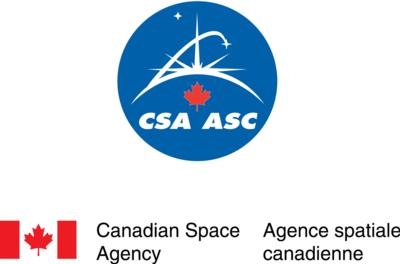Mon, Mar 14, 2016
Four New Experiments Will Benefit Both Space Travellers And Earthlings
Four new Canadian studies in the field of space health research have received funding from the Government of Canada to reduce health risks for astronauts on long-term missions. These experiments will simulate space conditions on Earth to investigate the physiological and psychosocial adaptation to space.

These research projects may also have a positive impact on health and the quality of life here on Earth. Many of the physiological changes that astronauts undergo in space are similar to problems related to aging or physical inactivity. The psychosocial effects of long-term space travel are also comparable to those experienced in remote work environments, isolated communities and among shut-ins.
The Canadian Space Agency is investing a total of $1.7 million in these studies. Workers who spend a winter season at an Antarctica research stations experience isolation similar to what astronauts experience during long-term missions to the International Space Station. They are confined with a limited group of people far from their families and normal social and health support networks.
Subjects taking part in studies at the MEDES facilities will spend 60 days confined to an inclined bed with their heads at an angle six degrees lower than the body. This produces some of the same effects on the body as weightlessness in space.
"Today's investment is a great demonstration of how experiments that help us understand the impacts of space travel on humans can benefit us here on Earth," said the Honourable Navdeep Bains, Minister of Innovation, Science and Economic Development. "Not only will these studies help us better ensure our astronauts stay healthy as they explore space, they will help expand our knowledge of health issues and drive innovations that could improve the lives of Canadians across the country."
"Space science often trickles down to our daily lives," added the Honourable Kirsty Duncan, Minister of Science. We are proud to support this scientific research that will deepen our knowledge of the effects of longer missions on astronauts, and can improve our understanding of the effects of prolonged isolation or physical inactivity on the body and mind."
(Source: Canadian Space Agency news release)
More News
Aviation Governance Secured...At Least For a While The National Business Aviation Association similarly applauded the passage of the FAA's recent reauthorization, contentedly recou>[...]
Emphasis On Growing The Future of Aviation Through Concentration on 'AFFORDABLE FLYERS' It's been a number of years since the Latest Edition of Jim Campbell's HUGE SportPlane Resou>[...]
Amazilia Aerospace GmbH, Develops Digital Flight Control, Flight Guidance And Vehicle Management Systems Textron eAviation has acquired substantially all the assets of Amazilia Aer>[...]
Honeywell's Primus Brings New Tools and Niceties for Hawker Operators Hawker 4000 business jet operators have a new installation on the table, now that the FAA has granted an STC f>[...]
Company Celebrates Niche-but-Important Advancement in Industry Standards Echodyne has announced full integration of its proprietary 'EchoFlight' radar into the e American Aerospace>[...]
 Bolen Gives Congress a Rare Thumbs-Up
Bolen Gives Congress a Rare Thumbs-Up The SportPlane Resource Guide RETURNS!!!!
The SportPlane Resource Guide RETURNS!!!! Buying Sprees Continue: Textron eAviation Takes On Amazilia Aerospace
Buying Sprees Continue: Textron eAviation Takes On Amazilia Aerospace Hawker 4000 Bizjets Gain Nav System, Data Link STC
Hawker 4000 Bizjets Gain Nav System, Data Link STC Echodyne Gets BVLOS Waiver for AiRanger Aircraft
Echodyne Gets BVLOS Waiver for AiRanger Aircraft



